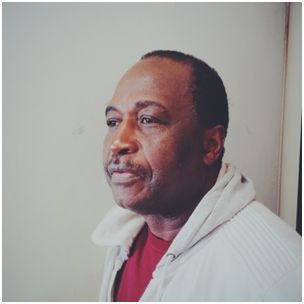Sierra Leonean writer Edison Yongai on his latest novel
On Tuesday June 17 this year, prolific Sierra Leonean writer, Edison Nyambeche Yongai (in photo), made a public reading of his latest fiction titled NO NAME FOR REFUGEES to eager readers in the Auburn local government area in Australia. The book was published by Balboa Press of Australia and released to the public at the beginning of March. The reading coincided with celebrations marking Refugee Week, a programme described as “Australia’s peak annual activity to raise awareness about the issues affecting refugees and celebrate the positive contributions made by refugees to Australian society”.
The story of the book, narrated by a nameless 15-year-old boy, chronicles the journey of the boy and his family (consisting of his father, mother and little sister, who are also nameless) and their eventual resettlement in Australia after fleeing from a brutal war in their country in Africa.
Their fight for survival and their seemingly loss of the battle to successfully make it in a strange land where almost everything is different becomes their nemesis (if I could use that word). The father’s lack of a decent job in their new country while he was a well-to-do man in Africa builds disrespect between him and his wife and the numerous quarrels and fights forced the police to step in and the husband and wife are separated by the court according to Australian law and the husband has to leave the house. The absence of his usual supervision and encouragement makes the growing boy and his sister delinquents and they begin to slacken in their school work and their various favourite physical games, like soccer and basketball.
The girl gets impregnated by the African man who recruited her to be a drug-courier and the boy too is recruited until he is arrested by the police. Superstition overcomes the mother of the kids and she thinks all the problems in the family are caused by their ancestors being angry with them for failing to initiate their daughter into the female secret society, the Bondo Society. Unfortunately, Australia has a strict law against the circumcision of female residents which carries a jail term of not less than 20 years.
Many of the listeners at the book reading expressed personal familiarity with some of the episodes in the book. Ms Bintu Kamara, a prominent Sierra Leonean community worker and one who patronises every function hosted by Sierra Leoneans, spoke about her own personal experience with the social security office when she newly arrived in the country. The social security office is responsible for giving out money on fortnightly basis to newly arrived refugees and to those not working. However,its relationship with newly arrived refugees stands out prominently in the novel. Another hardworking Sierra Leonean patriot, Mike Kallon (commonly known as Batilo), spoke about the possibility of distributing the book to schools to court more attention of the Australian public to the life of Africans living in Australia as their home. Anthony B. Conteh (the writer of this piece and senior convener of the Sierra Leone Radio in Sydney) said the story looks fictional but can truly be related to various aspects of one’s life as a refugee in any developed country, not only Australia.Ms Fatima, a Somali worker who works across all African communities, said that Africans are most times overwhelmed by settlement issues but could overcome the challenges with resilience. In response to her question, Mr. Yongai said he hopes to write another book.
Speaking to the author Edison Yongai after the reading, he told me that he wrote a fiction and that its relation to any character or event is purely coincidental. He said the job of a fiction writer is to make fiction become reality and reality become fiction when necessary. Nobody could be more suitable to write about the life of refugees in Australia than Edison Yongai who himself arrived in the country as a refugee at the end of 2001.
He dedicated the book to various Australians who have made sacrifices for the interest of African refugees, like Mr. David Addington who helped to organise the Northern Beaches Refugee Sanctuary by providing funds to those who wanted to bring their relatives to Australia but hadn’t the finances. It is also dedicated to Ms Barbara Davis, commonly known as Barbie, who has dedicated her life for the past seven or more years to transportfreight containers of school materials to be distributed freely to Sierra Leonean schools as a contribution to rebuilding lives after more than ten years of a devastating conflict. Mr. Yongai did not forget to dedicate the book to his English teacher in his first years of secondary school, Mr. Edward Finnegan, who nurtured his young mind to love reading and writing, and to Mr. Hans Lunshof, UNHCR Protection Officer in Conakry, Guinea, for his good relationship with helpless refugees between 2000 and 2001.
Thanks to Miss Adama Kamara, a dynamic Sierra Leonean working for the Auburn City Council as Community Projects Officer and Ms Pamela Davies, Client Services Coordinator of the Auburn City Library, for organising this successful book reading event. Mr. Yongai said the programme wouldn’t have happened if those ladies weren’t there
By Tony Bee , Sydney, Australia.
Stay with Sierra Express Media, for your trusted place in news!
© 2014, https:. All rights reserved.



